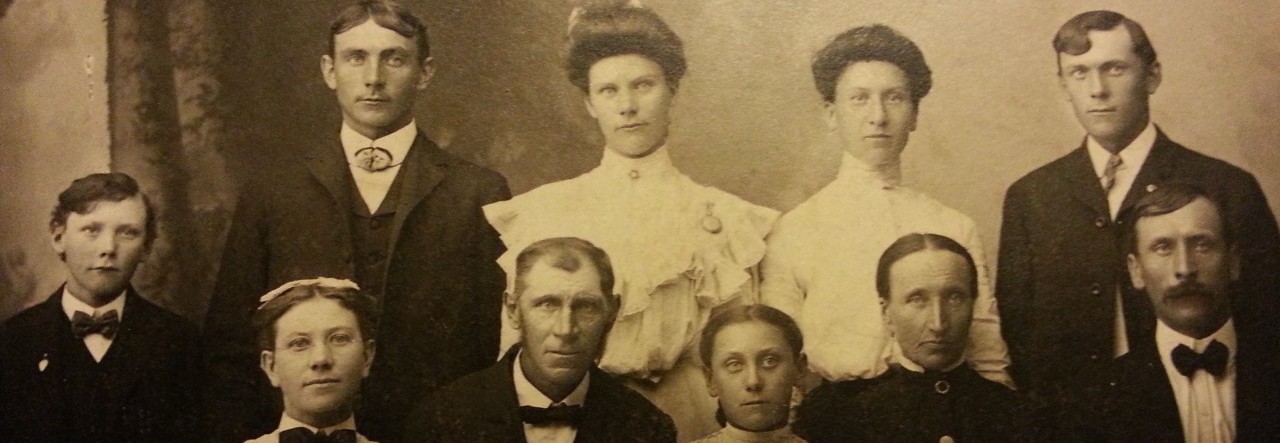The other day, I received an email from Ancestry.com announcing AncestryAcademy. Has anyone else seen this? To access it from your homepage you go to Learning Center and it’s the last one on that pulldown menu. If you are using the Beta (like me) it shows up in your extras tab at the top of your homepage. I tried out one course so far and here’s my rundown based on that:

What Is It?
AncestryAcademy has many video courses on a variety of genealogy topics offered by Ancestry.com. These course are for genealogists of any level.
What Kind of Courses Are Available?
New courses are added monthly and so far there are five courses available:
- Who is That Tick Mark? Using Early Census Records with J. Mark Lowe, CG, FUGA: This focuses on early census forms from before 1850.
- The Buckeye State: Researching Your Ohio Ancestors with Amy Johnson Crow, CG: This focuses on Ohio ancestors and goes into records like tax records, census records, court records, land settlement, etc.
- Getting the Most Out of Family Tree Maker with Duff Wilson: For those who use Family Tree Maker and wish to get the most of it, this course focuses on using the program.
- Native American Ancestry? Steps to Learn more with Paula Stuart-Warren, CG: This focuses on Native American ancestry and records to look for.
- Street Smarts: Finding Your Ancestor in the Big City with Juliana Szucs: This focuses on researching your family when it comes to the city they lived in and what you can learn from looking around them.
What to Expect

I decided to take the Ohio Ancestors one as I have a trip to Fort Wayne planned where I will be focusing on some of my Ohio ancestors and figure this will be a good start.
The 14 videos in this session vary in length from 48 seconds to 7 mins 24 seconds for a total of a little less than an hour.
Each video (besides the intro and outro) have goals for you to learn in the short video. There is also a handout with the slideshow notes, which I appreciate. I do have dual screens so I tend to take notes on one screen while watching the video in the other, but for those who don’t, then you can use this handout to take any additional notes.
You can watch it all at once (the videos just keep going from one section to the next unless you stop that) or you can watch it in small segments (one video at a time). I watched them all at once, however, for some reason it kept skipping a section ahead. I just needed to then manually choose what video I wanted to see instead, but I hope whatever glitch that was will be fixed soon.
After you watch the videos, there is a quick test to take to complete the course and then you can print a certificate if you so choose.
The Downside
It can cost extra from your subscription. However, if you already subscribe to the Ancestry World Explorer Plus, the cost is included in that subscription.
If you do not, here are the costs:
- Ancestry Academy Monthly: $11.99/month – unlimited access to all courses and the new ones added monthly
- Ancestry Academy Annual: $99.99/year – unlimited access to all courses and the new ones added monthly
The Upside
This can be a great addition to those wishing to learn more about genealogy. Although these courses are for everyone, I feel those who will benefit the most will be the beginners and intermediates.
For the course I took, I did learn about the uniqueness of Ohio’s land records (which I did not know before) as well as where to look for records and what could be available for the time frames I’m looking for. I found the course beneficial to me and that is always a plus!
Overall
The AncestryAcademy is included in the Ancestry World Explorer Plus and I think that’s a great addition to those who have that already. Is it worth those who do not have that subscription? That will be up to the individual to decide. I do wish they’d offer a free trial so that those who wish to try it out could see if it would be worth it to purchase. I feel it really depends on where your strengths and weaknesses lay as a genealogists. The courses they have at the moment, may not be areas where you have interest or you may already feel quite knowledgeable about those areas. I’d say keep watching to see if items are added that you may find worthwhile. Then perhaps, trying it out for a month may be worth it.
I do believe that you can learn quite a bit from these courses and I hope that they will continue to add worthy courses to make the addition something people will benefit from.
Have any of you tried out these courses? What did you think?
Happy hunting!
![By Hogs555 (Own work) [CC BY-SA 3.0 (http://creativecommons.org/licenses/by-sa/3.0)], via Wikimedia Commons](https://i0.wp.com/www.copperleafgenealogy.com/wp-content/uploads/2016/02/Lake_CO.jpg?resize=300%2C169)


![Zephyris at the English language Wikipedia [GFDL (http://www.gnu.org/copyleft/fdl.html)], from Wikimedia Commons](https://i0.wp.com/www.copperleafgenealogy.com/wp-content/uploads/2016/01/A-DNA_B-DNA_and_Z-DNA-e1454015169173.png?resize=500%2C326)
![By Jerome Walker,Dennis Myts (Own work) [Public domain], via Wikimedia Commons](https://i0.wp.com/www.copperleafgenealogy.com/wp-content/uploads/2015/12/DNA_double_helix_45.png?resize=336%2C359)

